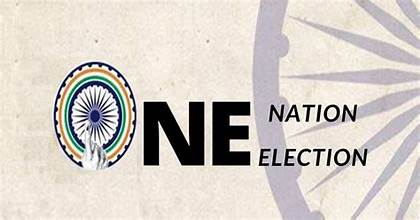Prospects of “One Nation, One Election” in India
In a significant stride toward electoral reform in India, the proposition of “One Nation, One Election” gains traction as the Law Commission gears up to introduce a dedicated chapter in the country’s constitution. This move holds profound implications for India’s political landscape, potentially streamlining the electoral process and fostering political stability. Let’s delve into the details of this transformative endeavor and its potential impact on the nation.
Understanding the Concept of “One Nation, One Election”
The concept of “One Nation, One Election” advocates for synchronizing the schedules of the Lok Sabha and state legislative assembly elections, ensuring that all elections are held simultaneously across the country. This departure from the current practice of staggered elections aims to curb the incessant cycle of polls, which often disrupt governance, impede development initiatives, and incur substantial financial costs.
Prospects and Challenges of Implementing “One Nation, One Election”
Prospects:
- Enhanced Governance Efficiency: By aligning national and state elections, “One Nation, One Election” promises to minimize disruptions to governance, enabling elected representatives to focus on their duties rather than perpetual campaigning.
- Cost Reduction: Consolidating elections is poised to substantially reduce the financial burden associated with conducting multiple polls, thereby optimizing resource allocation and promoting fiscal prudence.
- Streamlined Electoral Process: Standardizing election schedules can simplify logistical arrangements, mitigate administrative complexities, and enhance the overall efficiency and integrity of the electoral process.
Challenges:
- Constitutional Amendments: Enacting “One Nation, One Election” necessitates significant amendments to the constitution, requiring consensus among various political stakeholders and meticulous legislative deliberations.
- Political Opposition: The proposal has encountered resistance from certain political quarters, citing concerns regarding federalism, representation, and the dilution of regional voices in national discourse.
- Logistical Considerations: Coordinating simultaneous elections across diverse states poses logistical challenges, including security arrangements, voter education initiatives, and the deployment of electoral machinery.
The Role of the Law Commission in Advancing Electoral Reforms
Amidst the discourse surrounding “One Nation, One Election,” the Law Commission emerges as a pivotal actor tasked with drafting a dedicated chapter to institutionalize this reform within the constitutional framework. The Commission’s proactive stance underscores its commitment to fostering inclusive and effective governance mechanisms.
Timeline and Roadmap for Implementation
While the timeline for implementing “One Nation, One Election” remains subject to deliberation and consensus-building, projections suggest that the reform could be operationalized by 2029, provided requisite legislative amendments and logistical arrangements are diligently pursued. A phased approach, encompassing pilot initiatives and stakeholder consultations, may pave the way for a seamless transition to synchronized elections.
Disclaimer : इस न्यूज़ पोर्टल को बेहतर बनाने में सहायता करें और किसी खबर या अंश मे कोई गलती हो या सूचना / तथ्य में कोई कमी हो अथवा कोई कॉपीराइट आपत्ति हो तो वह [email protected] पर सूचित करें। साथ ही साथ पूरी जानकारी तथ्य के साथ दें। जिससे आलेख को सही किया जा सके या हटाया जा सके ।















